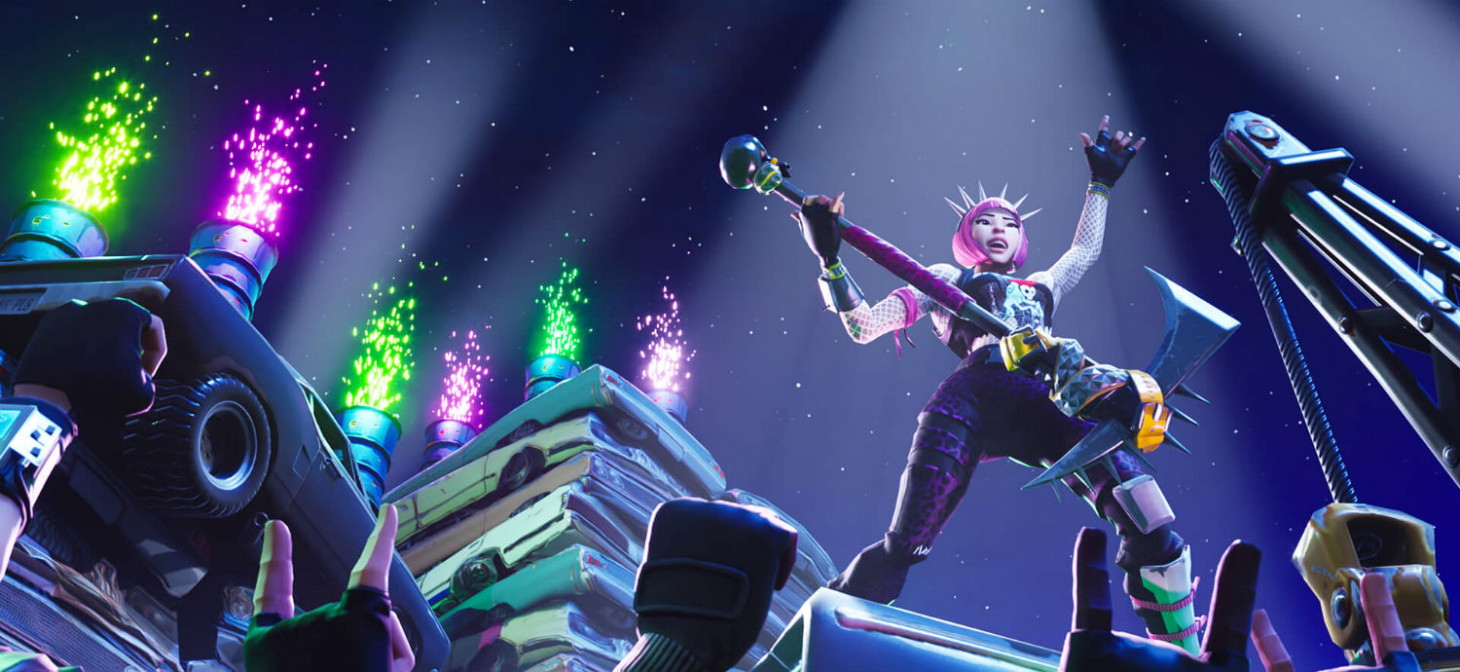Please support Game Informer. Print magazine subscriptions are less than $2 per issue

Chance The Rapper Wants Fortnite To Start Cutting In The People Behind Popular Dance Emotes
As Season 5 of Fortnite begins this week, one of its most popular players wants developer Epic to implement a way for the people behind many of the popular emotes to monetize the dances they made famous.
Yesterday, Chance posted a tweet suggesting Epic put the actual songs that go with many of the emotes it's added to Fortnite over the last year as way to let the artists who popularized the dances that are now making money for Epic as emotes.
Fortnite should put the actual rap songs behind the dances that make so much money as Emotes. Black creatives created and popularized these dances but never monetized them. Imagine the money people are spending on these Emotes being shared with the artists that made them
— Chance The Rapper (@chancetherapper) July 13, 2018
To be clear, Chance is not explicitly suggesting Epic start giving the people who made the dances popular directly. Rather, the implication here seems to be that by officially licensing the songs that often go with these dances, the people responsible for making the emotes popular in the first place (and the reason any of these dances are in the game in the first place) a way to monetize them.
Most the dances in Fortnite are not created from scratch. They're references to popular culture, and because many songs originate from songs, many of them are also tied popular songs. The "Floss" emote, which has become one of the most popular emotes seen in the game? That's a reference to the popular dance popularized by the "Backpack Kid" (real name Russell Horning) who was performing the dance years earlier. You'll also find similar examples in just about every kind of popular online multiplayer game, like Destiny 2 and World of Warcraft.
Chance then laid out a couple of examples of what he means, using the "Hype" (which is featured prominently in the music video for Drake's "Look Alive") and "Swipe" (inspired by 2Milly's dance in the video for "Milly Rock"). Effectively, this would let players buy the song and the emote at the same time, letting them dance in-game and support the artist.
I would love to be able to buy Hype and also be purchasing Look Alive or buy “Swipe” and be buying it from both @FortniteGame AND 2Milly https://t.co/eUgKksJzIY
— Chance The Rapper (@chancetherapper) July 13, 2018
Chance's suggestion also comes in after Epic announced it was increasing the percentage of revenue developers of items in the Unreal marketplace take away from the sales of their items. This shows that with as much money as Epic is making from Fortnite, it is more open to enticing creators to work with them and share in that profit. This could, theoretically, also apply to adding the songs for emotes.
Our Take
Chance's suggestion brings up a good point. As many of the most popular songs in the world rise to new levels of popularity through the virality of social networks, streaming services like Spotify pay less than a cent per play on their services to the artists. This means that artists need to find alternative ways to monetize their success. Perhaps not a sob story for the likes for artists like Drake, but being able to make money on the emotes could mean a world of difference to a less popular artist whose dance could be the next sensation.
Another question at play here is ownership. Sure, the Horning made the Floss song popular, but how much did his appearance in Katy Perry's music video for her song "Swish Swish" do to grow the dance's popularity? If any song were to accompany "Floss" it'd be that one, so how much would Horning make on the dance in that case? Does SNL, which hosted one of the breakthrough performances of the dance, factor in at all?
Finally, there's the question of whether choreography can be copyrighted in the first place, which is a difficult topic to address fully here. In short; it's hard to do, but not impossible. So if the revenue for emotes becomes a huge moneymaker, the people who popularize them could start looking to get in on some of that money.
It's an interesting topic, one that has a chance of being brought up more often as these dances are implemented in more games and artists continue to search for new avenues to monetize their success.











